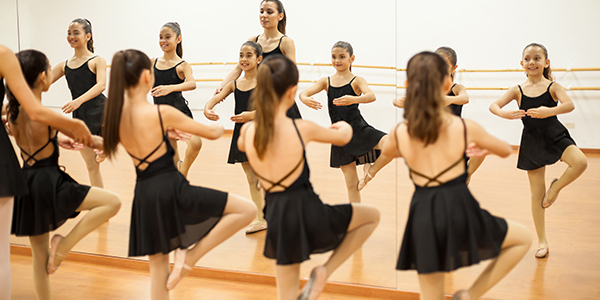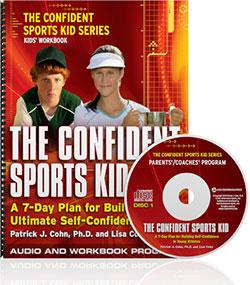
Bullying is an Epidemic in our Society Today
And it’s especially a problem in sports. A recent survey of 22,000 high school students across the U.S. found that 48% of the respondents had been targets of hazing–a form of bullying in which kids are humiliated or required to take part in dangerous activities. What’s more, sports is the arena in which much of the hazing takes place, says C. Roger Rees, professor in the Department of Health Studies, Physical Education and Human Performance Science at Adelphi University.
Sports parents report to us that their young athletes are teased, harassed and threatened by bullies. Bullies will also exclude young athletes from social groups or try to intimidate them into quitting sports.
Athletes who are subjected to bullying will often lose focus, play or perform tentatively, feel anxious, drop out of tournaments or competitions, or quit sports altogether. In addition, they’re reluctant to tell their parents or coaches they’ve been bullied because they’re embarrassed or feel shame.
But here’s the good news: Whether you’re a coach or a parent, you can help your young athletes stay mentally tough in the face of bullies–and you can help them learn critical life lessons from this experience.
Bullies target all kinds of young athletes. They can set their sights on kids who are overweight, small or who lack confidence, for instance. Bullies also target gifted athletes, generally because the bullies are jealous and want to intimidate the gifted athletes into leaving the competitive arena. No matter what the reason for the negative behavior, your job is to stop the bullying.
Sixteen-year-old Sarah, a swimmer who has qualified for state championships in her stroke–the butterfly– doesn’t get to enjoy her successes. Whenever she wins or does better than Wendy–one of her teammates–Wendy turns the other girls on Sarah.
Sarah, of course, is tempted to swim poorly in order to ensure her teammates like her and are nice to her.
In this situation, Sarah is the target of female bullying or what’s called “relational aggression,” says Cheryl Dellasega, a Ph.D. psychologist and author of numerous books about girls. “With females, relationship issues are often at the heart of athletic aggression. Anger, resentment, and jealousy get translated into subtle forms of meanness such as gossip, manipulation and exclusion,” she explains.
Girls tend to approach competing differently than boys, Dellasega says. “Girls can learn a lot from boys about being part of a team, and working together to achieve a greater goal even if you don’t ‘like’ the other girls you are grouped with,” she says. Men and boys are more likely to channel their aggression into performing better–rather than being mean,” she says.
“Many girls need to learn that competition is not a bad thing,” she adds. “In fact, it can work to their advantage, as males learn early on when they’re grouping up to accomplish a goal of winning/accomplishing, not proving one person better than another,” she says. In this case, Sarah’s parents need to talk to the coach, who should remind the team of the importance of teamwork.
“It sounds like all the girls in this situation are missing the major point that this is a swim team, not an individual competition,” says Dellasega. “Those who come in first or second or third are earning points for the whole team–this is a good opportunity for the coach to have a talk about what life holds for those who can and cannot learn to work for the ‘greater good.'”
At the same time, Sarah needs to rise above the girls’ behavior and serve as a good role model for the team.
If your daughter, like Sarah, is bullied by teammates for succeeding, first talk to the coach to ensure the coach encourages team work. Second, ask your daughter to set a good example by serving as an exemplary team member. Help her focus on her task as a swimmer, rather than on the girls who are trying to hurt her. She’s grappling with two of the main issues we discuss in youth sports psychology: Feeling distracted by teammates and seeking social approval.
When kids are distracted in this manner while competing, they need to find ways to focus their attention on the task at hand–in this case, swimming. They should concentrate on small goals: what they need to do to complete this stroke or this lap.
They should also adapt a “success-driven” mindset. Rather than doing things to avoid pain (in this case, rejection), girls should embrace more positive goals. Sarah could serve as a role model for the other girls by refusing to engage in “Mean Girl” games, continuing to succeed and by embracing teamwork.
The Role of Coaches:
Coaches set the stage for how kids on a team treat one another. They should be very clear that they want to create an atmosphere of respect, support and team unity. They should also state clearly that they won’t tolerate players bullying each other or members of other teams.
“The coach can say, ‘On my team, this is how we are going to communicate and treat each other,'” says Carl Pickhardt, Ph.D., a psychologist and the author of Why Good Kids Act Cruel. If they don’t show that kind of leadership, their team members may engage in what he calls “social cruelty.”
“What I do at the beginning of the season, I say, “If I hear you talk negatively about anyone on our team, anyone on other teams, or the referees, or umpires, you will sit,” says youth sports coach Doug Donaldson, president of PlaySportsTV. “I make it something they understand from day one. The key is to really make sure they understand the impact their behavior has on the rest of the team,”
If coaches or parents witness or become aware of teasing, exclusion, threats or other forms of bullying, they need to take action. Parents should talk directly to the coach and not try to talk to the bully’s parents. Parents shouldn’t accuse coaches for being responsible for the kids’ behavior, but should solicit their help.
How to Help Athletes Stay Mentally Tough:
Parents and coaches can help kids by sharing with them tips from bullying experts like Pickhardt.
First of all, kids should understand it’s okay to feel afraid of bullies, says Pickhardt. However, they shouldn’t show that they’re afraid. In fact, they should identify how kids look when they’re afraid, and purposefully avoid looking like that. For example, they should not slump their shoulders and should not avoid eye contact with the bully. Their goal is to look confident–even if they don’t feel it!
Next is a critical step. Kids should throw the bully off guard, says Pickhardt. “Just when he thinks you’ll step away from him, step up and maybe say something friendly.” Young athletes might say, “After you’re done teasing me, maybe we can shoot a few hoops together.”
Parents can be very helpful at this stage. “The goal of the parent is to coach the bullied child and give that child choices. They have choices they can try out.” Parents, for example, might help their kids come up with one-line responses to bullies, Pickhardt says.
When young athletes step up and respond to bullies with seeming confidence, they will likely throw the bully off guard. Athletes can take this idea one step further. Next time they see the bully, they should approach him or her and say, “Hi, how are you?” or ask a question about sports.
“Bullies aren’t looking for people who will take the initiative,” Pickhardt says. “They are looking for people who will manifest fear.”
If adults can help children take these steps, the young athletes will learn critical life lessons. They’ll discover that they can handle very difficult situations–a discovery that will likely boost their confidence and enjoyment in sports.
Related Sports Psychology Articles
- How to Deal With Bully Coaches
- What Can Parents Do When Coaches Bully Their Sports Kids?
- Helping Sports Kids Let Go of Mistakes
*Subscribe to The Ultimate Sports Parent Podcast
*Subscribe to Peak Performance Sports on Youtube
Download a free sports psychology report to improve your mental game!
The Confident Sports Kid

When kids lack confidence, they doubt themselves, stop taking risks, play tentatively, and are hard on themselves. As a result, kids often lose their motivation to improve. Ultimately, these barriers keep them from enjoying sports and making the most of their physical talent.
“The Confident Sports Kid” program is actually two programs: one that teaches sports parents how to boost their kids’ confidence, and another that teaches young athletes age 8 to 18 how to improve their self talk, avoid negative thinking, overcome expectations that limit confidence, and much more. The program will help kids boost their confidence in sports and life…and enjoy sports more.
